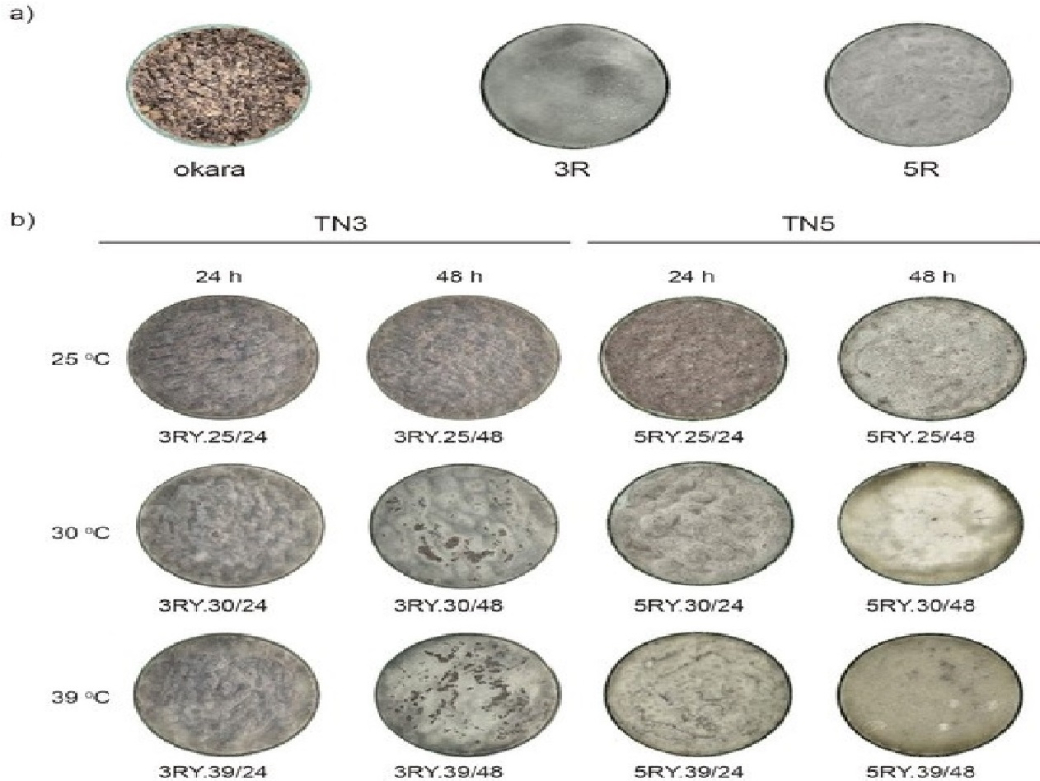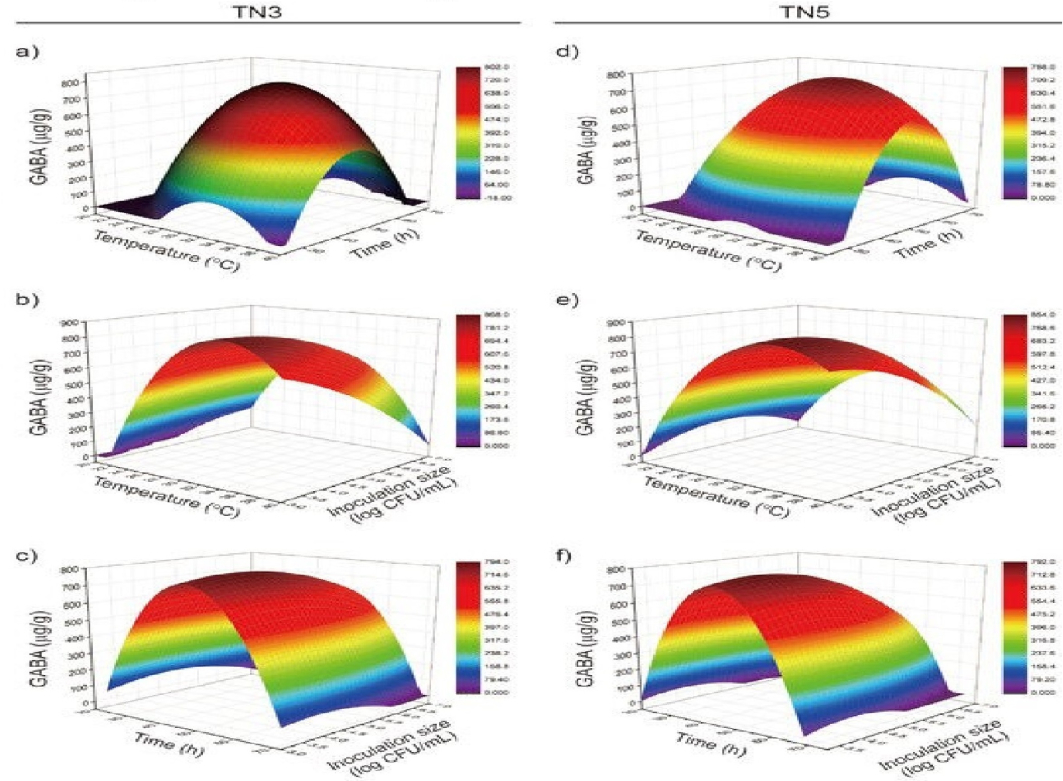Featured Scientist

Jung-Feng Hsieh, Ph.D.
Professor
A response surface methodology for sustainable production of GABA from black soybean okara using solid-state collaborative fermentation of Rhizopus oligosporus and Yarrowia lipolytica
Black soybean okara is a common food byproduct in Asia. This study conducted collaborative fermentation with Rhizopus oligosporus and Yarrowia lipolytica to produce a GABA-enriched okara product. Two black soybean varieties, TN3 and TN5, were used, and optimal fermentation conditions were predicted using response surface methodology (RSM). After 24 h of Rhizopus oligosporus incubation, Yarrowia lipolytica was inoculated under 20 trial conditions with variations in temperature, incubation time, and inoculation size. The model predicted that the highest GABA content would be achieved at 34-35 °C, 47-49 h incubation, and 3-4 log CFU/mL inoculation. Under these optimal conditions, the maximum GABA yields achieved were 868.3 µg/g for TN3 and 853.1 µg/g for TN5. Fermentation conditions had minimal influence on protease activity, which may be attributed to the distinct roles of Rhizopus oligosporus and Yarrowia lipolytica in the fermentation process. The solid-state collaborative fermentation technology supports food waste recycling and enhances product functionality, contributing to the circular economy.
Yi-Chung Lai, Chien-Cheng Yeh, Bang-Yuan Chen, Jung-Feng Hsieh, Chia-I Chang, Cheng Huang, Meng-I Kuo, Chun-Ping Lu. 2025. A response surface methodology for sustainable production of GABA from black soybean okara using solid-state collaborative fermentation of Rhizopus oligosporus and Yarrowia lipolytica. Fermentation, 11(6): 296.
Keywords:GABA; black soybean; okara; response surface methodology; fermentation; sustainable
8 views
